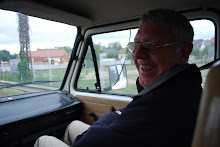Congregations throughout Transylvania remain largely divided along nationalistic lines. Each denomination seems to have separate national identity church tied to their parishes, no matter how small the number of members. Orthodox congregations, being most strongly tied to the state, tend to be mainly Romanian while Reformed churches are made up of nearly all Hungarian members. For the most part, these nationalist splits remain the rule rather than the exception and make the maintenance of strong spiritual lives among rural people difficult.
Barriers such as aging and shrinking congregations already threaten the life of the churches throughout Transylvania, and church leadership and members' strong apprehension to commingle nationalities continues to weaken churches’ power and its ability to reach out to non-members. With some exception, churches are largely unwelcoming to those outside the ethnicity or nationality to which they are tied. One example in particular is the lack of effort to outreach to Roma/Gypsy communities. In fact, many parishioners in established congregations express varying levels of hostility when Gypsies do attempt to explore their faith and attend services. Due to the traditionalist mindset of the rural churches based largely on nationality/ethnicity and tied to cultural heritage, churches in Transylvania remain small and exclusive in membership, and yet the pastors express in eagerness to expand.
Some churches have made strides however to welcome or at least interact with people of minority nationalities. The Catholic Church, while still predominately Romanian, has made attempts to partner in some respects with the Armenian Church in Transylvania. Also, the Orthodox Church has begun “evangelizing” in some rural communities – building churches in places without significant Romanian Orthodox populations in an attempt to win converts. Such steps could lead to the more converts for all denominations and promote warmer connotations toward religious life in general in rural areas.
The Romanian government in some ways has helped churches in revitalizing the spiritual lives of Transylvanians and in other ways has harmed their ability to do so. Many rural churches receive funding from the state for various purposes, one of which is to create or maintain schools. The churches’ ability to oversee education does assist the churches in sharing its principles with the youth. Yet, the specific allocation of funds continues to drive a wedge between the denominations. The requisite number of ethnic Romanian children necessary to garner state money and create a church run school teaching solely in the Romanian language and about Romanian customs is rather low. Much higher numbers of Hungarian students are needed for schools run by Reformed churches in rural areas to receive government assistance. Thus, there are very few Hungarian schools in rural Transylvania. This preference only widens the chasm between predominately Romanian, Hungarian, and other minority denominations. The preservation of minority rights and thus religious life in is incompatible with the Romanian nationalism touted by the state for decades.
(Sarah, Jordan, Paul)

No comments:
Post a Comment